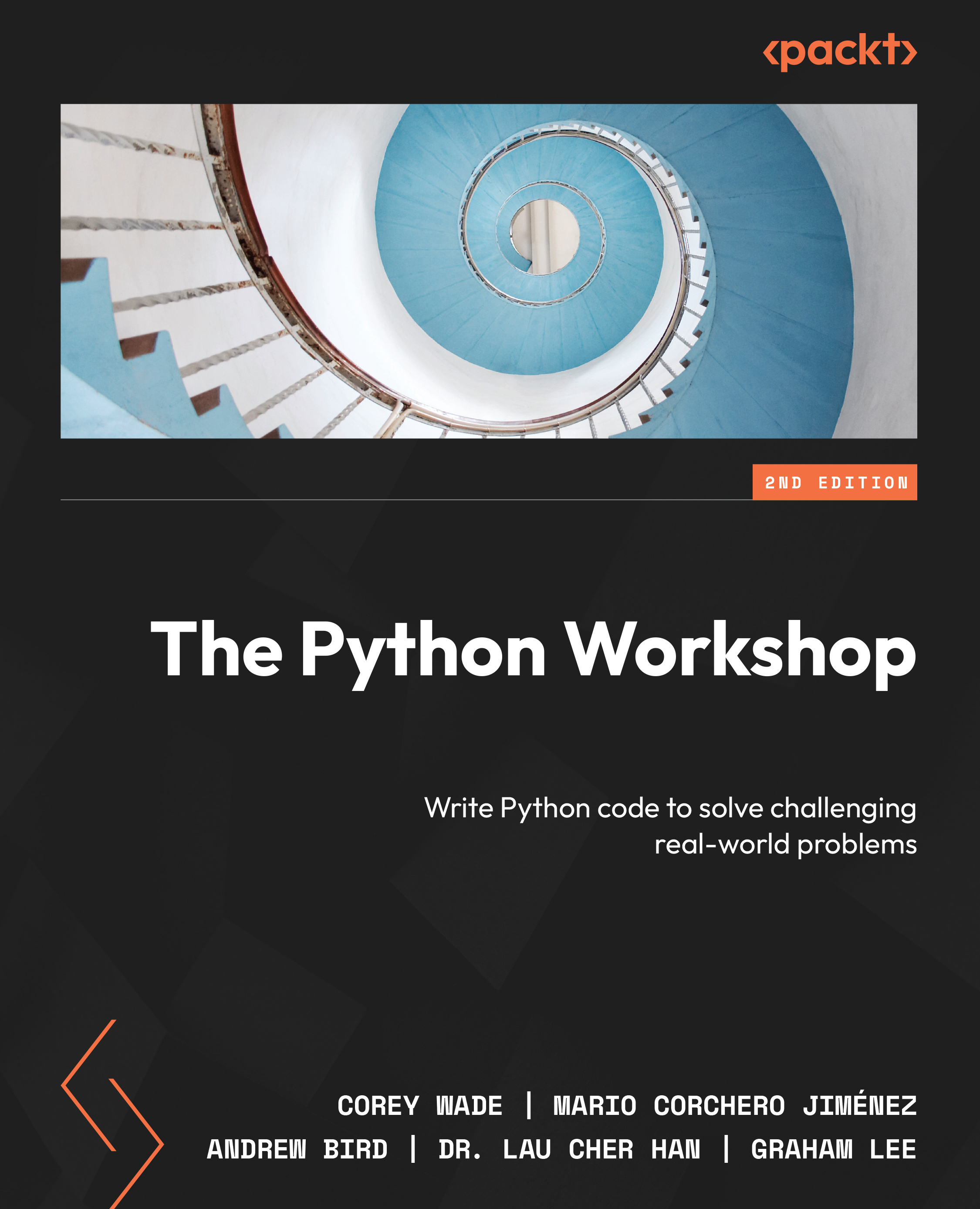Overview of this book
Python is among the most popular programming languages in the world. It’s ideal for beginners because it’s easy to read and write, and for developers, because it’s widely available with a strong support community, extensive documentation, and phenomenal libraries – both built-in and user-contributed.
This project-based course has been designed by a team of expert authors to get you up and running with Python. You’ll work though engaging projects that’ll enable you to leverage your newfound Python skills efficiently in technical jobs, personal projects, and job interviews. The book will help you gain an edge in data science, web development, and software development, preparing you to tackle real-world challenges in Python and pursue advanced topics on your own. Throughout the chapters, each component has been explicitly designed to engage and stimulate different parts of the brain so that you can retain and apply what you learn in the practical context with maximum impact.
By completing the course from start to finish, you’ll walk away feeling capable of tackling any real-world Python development problem.



 Free Chapter
Free Chapter
